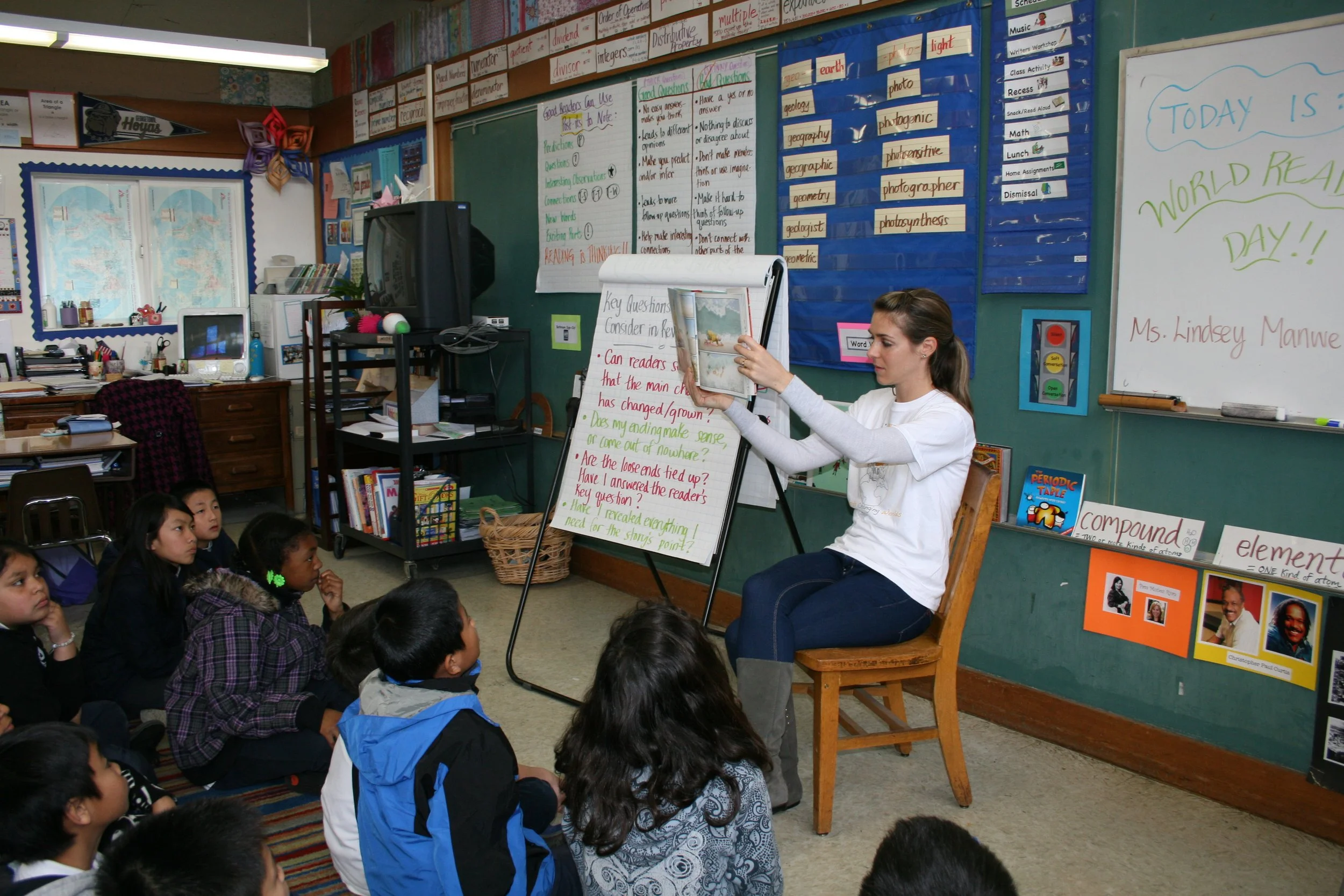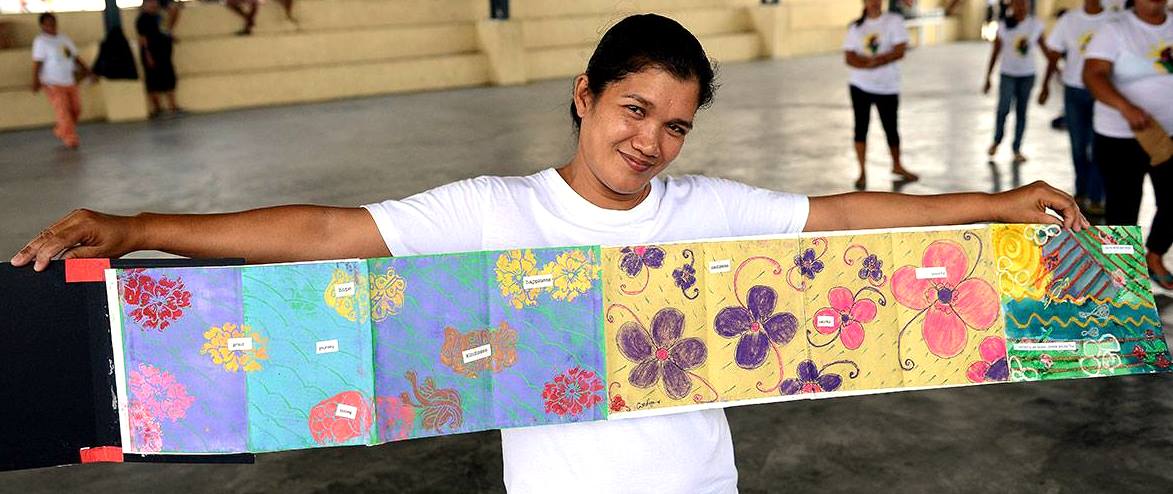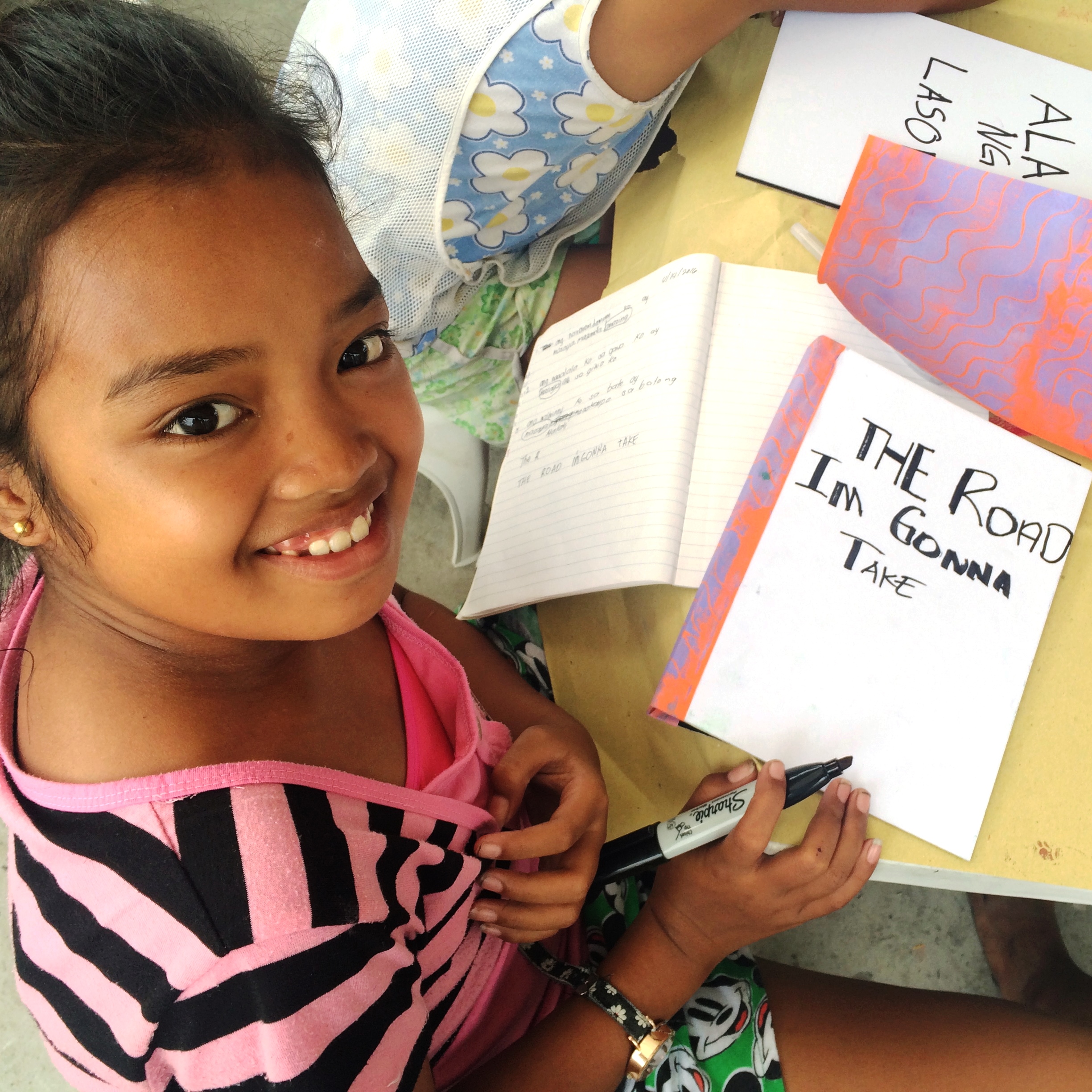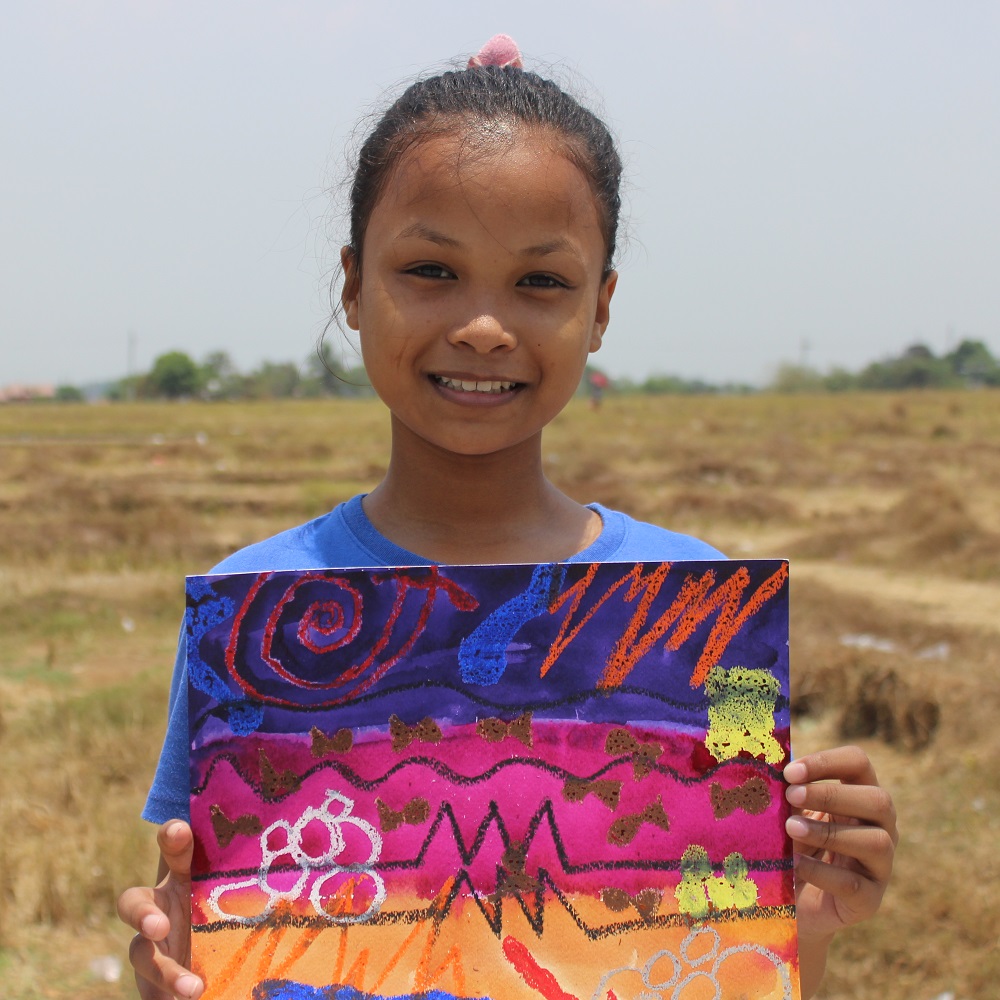Welcome! Our names are Monica Nimmagadda, Sara Davidow, and Kisha Bwenge, and we are the LitWorld's Research & Development interns for the summer. We are excited to take on this new role and embrace the 7 Strengths of LitWorld. This is the first in a series of blog posts about our time working with LitWorld. We call it, “Through Our Eyes: A Tale of Three Interns”. Enjoy!
Why did you come to LitWorld?
MN: I came to LitWorld to learn about the inner workings of a non-profit and about the more research and development side of education. After working with middle schoolers last summer, I’ve been interested in education and the ways in which it can impact other issues. I believe literacy is the stem of a lot of other problems and is an intersection of multiple inequalities such as race and gender. To be a part of an organization that takes literacy further into speaking, listening, and expression is eye-opening and wonderful. I love the passion behind this organization and I wanted to intern here because of it.
SD: I have always had a passion for reading, writing, listening, and speaking. For me, this literacy culminated in the ability to communicate with others, to hold space for them or to learn from them. I felt that being able to share life with others was where I really felt alive. Sure, I loved school. And sure, I looked forward to finding a great job and going on exciting adventures. But for me, these would be moot points if I could not find methods of connection. During an information session that I was leading for my university’s Admissions Office, I made a connection with a family in the audience. After the hour long discussion of higher education, social and emotional connections, and funky Clark traditions, the father approached me and suggested that I look up a “really amazing literacy non profit” that he believed I would find interesting. BOOM. Connection. The organization was LitWorld, if you can believe it. The father was correct; I did find LitWorld interesting. And passionate. And inspiring. And so I reached out. We set up an informational interview, and one thing led to another until a year later I received an email inviting me to become a Research and Development intern in their NYC office. I accepted and have found myself even more excited and ready to both connect with others and to help others find those connections. That, to me, is what literacy and LitWorld are all about.
KB: The setting of my first run-in with LitWorld wasn’t particularly exciting. I had been staring at my computer screen for hours that day, trying not to become overwhelmed by my post-grad job search, when I came across a listing on Idealist for an internship with LitWorld. As I began to research the organization, I was instantly inspired by their mission to validate and celebrate the voice of every child through the power of literacy. I connected this with my childhood experience as a bona fide bookworm, and my face lit up (pun intended!) as I learned more about the amazing work LitWorld does, especially for women and girls, across the globe. I knew right then that I had to apply!
Favorite children’s book?
MN: I would say Harry Potter, but that almost seems like a universal answer. To Kill a Mockingbird was probably the most influential book I’ve read. I made it a childhood ambition to be as moral as Atticus (spoiler alert: this may not be so true after Harper Lee’s sequel…) and as curious as Scout. It was a story about good vs. evil and about real issues, not just Voldemort vs. Harry Potter! To this day, I still think Harper Lee’s writing style and voice is unparalleled in any book I read after 7th grade. I guess 7th grade literature was the peak?
SD: The Giver, by Lois Lowry was (and still is) my favorite childhood book. If you have not read it yet, I encourage you to stop reading my section and go pick up a book first because there are spoilers ahead. The book is about accepting our emotions, and embracing the messy things that we cannot control, an excellent lesson for sure. However, what really made me love this book was when Jonas learns what color was. He connects to the Giver and realizes that these flashes of something that he keeps seeing on an apple is actually the color red, and then suddenly he gets to see the full spectrum of the rainbow. 11-year-old Sara was shocked that up until this point, I had not noticed that the author never described anything colorfully. Even more so, I was able to unlock a perspective parallel to Jonas. I try to reread the book each year as a reminder that things are not always what they seem, and that words can change our perspective.
KB: Stellaluna is by far my favorite children’s book. If you ever go to my house you’ll see it’s the only picture book left on our shelves. LitWorld programs emphasize the importance of belonging, and Stellaluna recognizes what is, to me, the most liberating aspect of belonging: that it is dynamic and multidimensional. In the story, a young fruit bat named Stellaluna is accidentally separated from her mother. She is found and raised by a family of birds, and learns how to sleep right-side-up and eat worms. When she is reunited with her mother, she struggles to understand both her bat-hood and her bird-ness (for lack of better words) but eventually realizes that these are both aspects of her identity (she’s pretty much a bat-bird!). As a young immigrant who grappled with my Tanzanian-American identity, Stellaluna was the first of many books that would show me the beauty in being hyphenated, and that’s probably why it’s the only picture book I never gave away.
What are you looking forward to this summer?
MN: More than anything, I look forward to connecting with the LitWorld staff and the people involved in the organization. LitWorld brings together so many people and I’ve already had opportunities to talk with a few of them. Us interns have actually been bombarded (not using this word lightly) with so many opportunities to learn from accomplished women involved in LitWorld from around the world. Other than that, I’m excited to help create something useful to the organization. It’s not often that interns have such a say in the work that they do. So, if you’re reading this debating whether you should try and intern here, I will say there have been no coffee runs and/or hours spent by the copier. Also, being New York isn’t that bad either.
SD: I am most looking forward to trying new things this summer. I feel as if I am in this amazing stage where I am learning things that I excite me, I am having stimulating conversations that challenge me, and I am seizing opportunities that ignite adventure in me. This summer will be the summer of saying yes more, challenging myself, and embracing the unknown. I do not know where it will take me, but that is part of the beauty.
KB: It sounds cheesy, but honestly everything! I’m excited for the work we will do with LitWorld--they treat their interns with such gratitude and respect, and I already feel like a part of the team. I look forward to applying my skills to make meaningful contributions to this organization and working with a passionate group of women. I’m also looking forward to more adventures in New York. I’ve wanted to live in the city for a while now, and it still doesn’t feel real that I’m spending the summer here. Not to mention, I’ve already had my first celebrity selfie (with Liandra Medine from the Man Repeller blog!) so I definitely can’t leave now.
--------------------------------------------------------------------------------------------------------------------------------------------
Monica Nimmagadda comes to LitWorld from Los Angeles, CA and has just finished her sophomore year at Amherst College in Massachusetts, where she is double majoring in Computer Science and Environmental Studies. Outside of academics, Monica runs cross country and track & field for Amherst.
Sara Davidow is a rising senior at Clark University, where she studies International Development and Social Change, with a concentration in Education and a minor in Women’s and Gender Studies. She recently returned from a “study-abroad” program in South Africa where she helped begin a PhotoVoice club with high school girls to help them share their stories. When she is not reading about the importance of education, she can be found playing Settlers of Catan or browsing the latest yard sale.
Kisha Bwenge is a recent graduate from Washington University in St. Louis with a B.A. in International & Area Studies (Development Concentration). She has explored her interest in international development through her coursework and research as a Mellon Mays Fellow. Her hobbies include photography, eating, and taking pictures of the food she eats.















